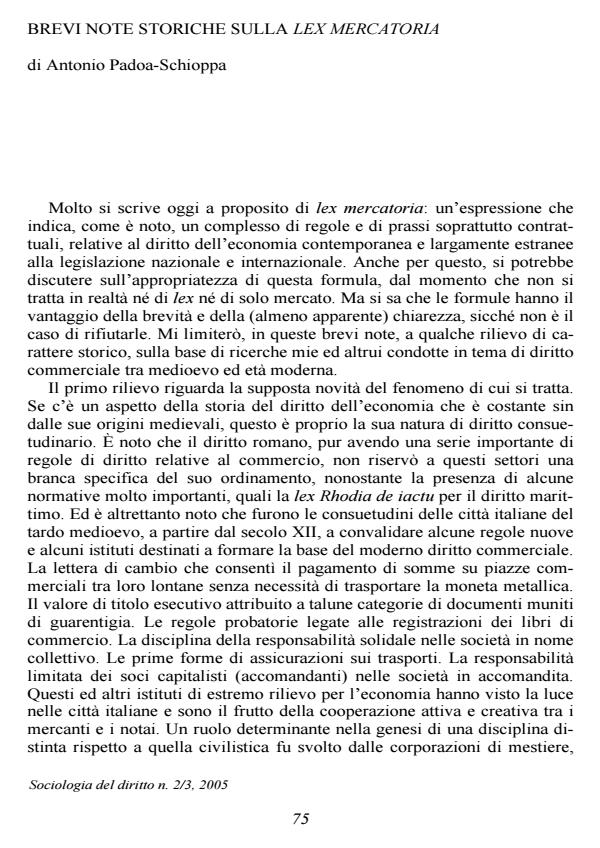Brevi note storiche sulla lex mercatoria
Journal title SOCIOLOGIA DEL DIRITTO
Author/s Antonio Padoa-Schioppa
Publishing Year 2005 Issue 2005/2-3
Language Italian Pages 8 P. File size 39 KB
DOI
DOI is like a bar code for intellectual property: to have more infomation
click here
Below, you can see the article first page
If you want to buy this article in PDF format, you can do it, following the instructions to buy download credits

FrancoAngeli is member of Publishers International Linking Association, Inc (PILA), a not-for-profit association which run the CrossRef service enabling links to and from online scholarly content.
Any outline of the sets of rules usually labelled as lex mercatoria a label that is open to discussion, arguing that lex is not law and market is not its only object cannot skip the question of their origins. The reason is clear: the lex mercatoria was born when merchants and guilds created a customary law to cater for the needs of the new trade economy of the XII and XIII centuries. From the Italian communes where they were created by merchants and notaries, these rules including such institutions as the bill of exchange, the company, new rules of evidence and procedure took hold in Europe, England included, and elsewhere. Only later were they partially outlined in written statutes (as early as 1160 in Pisa) and in state ordinances (as in Colbert’s Ordonnance of 1673). One theory that is often expressed is that the lex mercatoria will eventually overwhelm national legal rules, becoming a de facto supranational law that caters for the exigencies of big multinational (mainly American) companies. This is neither real nor desirable. Firstly, it should be remembered that any market included the world market can only function properly if it has a set of established legal rules binding on all operators and not necessarily consistent with their wishes, such as European Union competition legislation. Secondly, some international legal rules already exist (such as the Vienna Convention on Contracts for the International Sale of Goods, 1980) and there will be others in future. The lex mercatoria is (or rather ought to be) a synthesis of legal customs, legal rules and legal doctrines concerning production and trade: a synthesis that includes not only interests, vested or otherwise, but also values and legal ethics.
Antonio Padoa-Schioppa, Brevi note storiche sulla lex mercatoria in "SOCIOLOGIA DEL DIRITTO " 2-3/2005, pp , DOI: